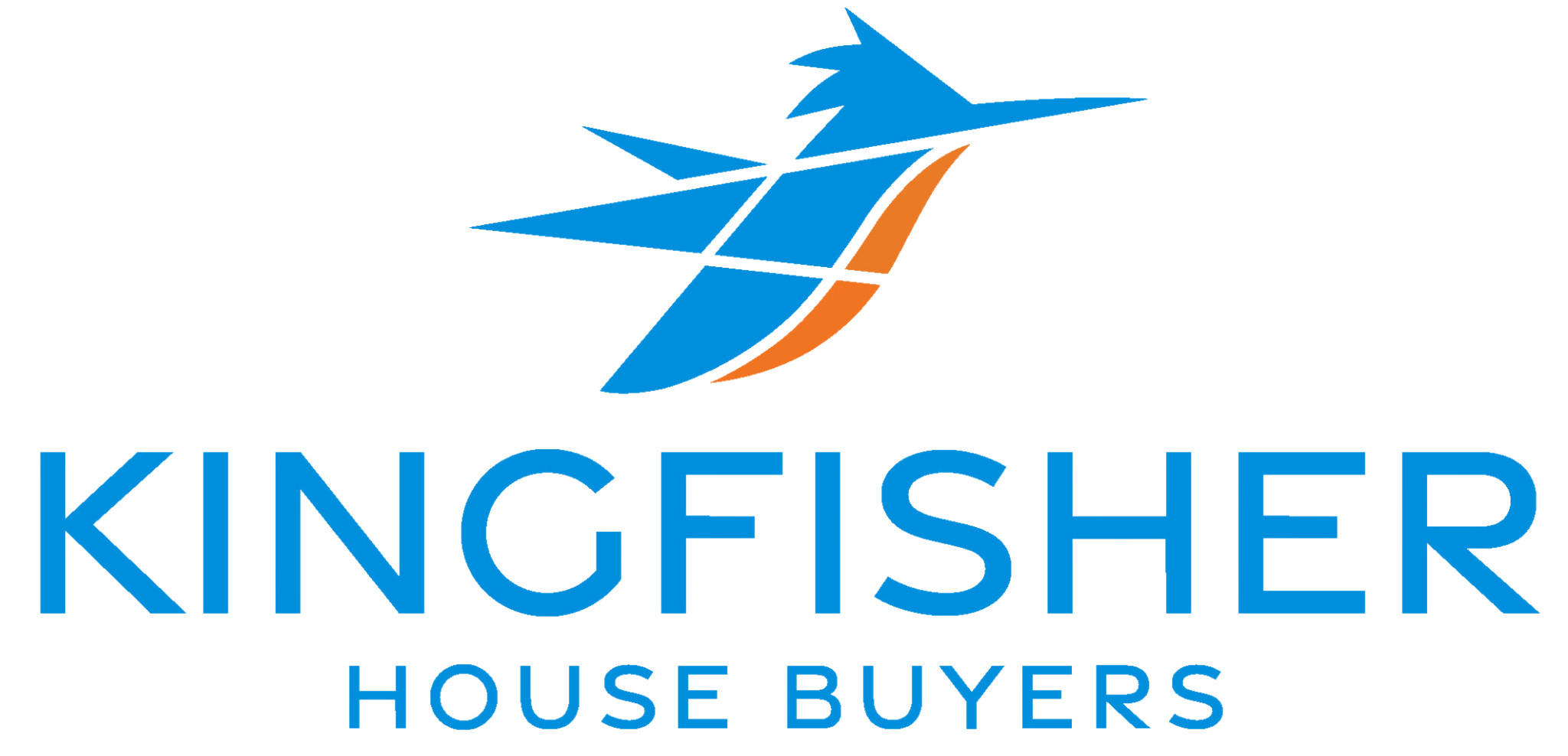
Legal Requirements for Property Transfers and Closings in Virginia
In Virginia, the legal requirements for property transfers and house closings are governed by a combination of state statutes and local regulations, ensuring that all transactions adhere to a standardized process. Essential elements include a valid deed, typically a general warranty deed or special warranty deed, which must be signed by the seller in front of a notary public.
The transfer of property also necessitates the recording of this deed at the local county courthouse to officially document the change in ownership. We also conduct a title search to ensure the property is free from any liens or claims that could hinder the transfer.
Closing lawyers are very important to these processes because they make sure that closing papers like loan agreements and settlement statements are properly prepared and looked over. They make sure that disclosures and tax payments, like grantor’s tax and recordation fees, are made in line with state laws.
Often, both parties obtain title insurance to safeguard against potential title defects that may surface after closing. In Virginia, it is customary for an attorney to represent lenders during closings, ensuring that all fiduciary responsibilities are fulfilled and that funds are properly disbursed according to escrow instructions.
The Role of an Attorney in Virginia House Closings
In Virginia, the role of an attorney in house closings is critical for guaranteeing a smooth and legally sound transaction. Attorneys are responsible for conducting thorough title searches to verify that the property title is clean and free of any encumbrances or liens.
They make and look over all the important legal papers, like the sale, settlement statement, and mortgage agreements, to make sure they follow state laws and look out for their clients’ best interests. Attorneys also help buyers, sellers, lenders, and other people involved in the finishing process talk to each other.
They provide legal advice on any issues that arise during the transaction and represent their clients at the closing meeting to ensure all paperwork is properly executed. By overseeing these critical aspects of a real estate transaction in Virginia, attorneys help mitigate risks and address potential disputes before they escalate into larger problems.
Understanding Attorney Fees for House Closings in Virginia
When buying or selling a home in Virginia, understanding attorney fees for house closings is crucial. In Virginia, an attorney typically plays a key role in the closing process, which involves various legal and financial steps to ensure the property’s clear transfer of ownership.
Attorney fees can be different depending on where the case is located, how complicated it is, and how experienced the lawyer is. These fees usually cover things like looking over contracts, making sure title searches are done right, and taking care of any legal problems that come up during the closing.
Lawyers can also help buyers, sellers, lenders, and real estate professionals talk to one another to make sure the deal goes smoothly. Both buyers and sellers should know that in Virginia, legal fees can be either a set amount or an hourly rate, depending on what the lawyer and the client agree on.
Kingfisher House Buyers ensures transparency regarding these costs, which can prevent unexpected expenses and help parties budget effectively for their home purchase or sale.
Average Attorney Fees for Real Estate Transactions in the Commonwealth of Virginia

In the Commonwealth of Virginia, average attorney fees for real estate transactions, particularly house closings, can vary based on several factors. Typically, these fees range from $500 to $1,500 but can fluctuate depending on the complexity of the transaction and the specific services required.
Lawyers in Virginia are very important for making sure that all the legal parts of property transfers are done appropriately. This includes title searches, contract reviews, and negotiating conditions. Fees can also change based on where you live in Virginia. For example, urban locations may have higher rates than rural areas because of differences in market demand and the cost of living.
Also, some Virginia lawyers may charge a flat fee for basic services during home closings, while others may charge by the hour for more complicated cases. For buyers and sellers in Virginia to make good budgets for their real estate closing costs, they need to know about these factors.
How to Budget for Closing Costs When Buying a Home in Virginia
When planning how much to spend on closing costs when buying a house in Virginia, it’s important to know what those costs include. Lawyer fees are often part of closing costs. These are important because they make sure that all the legal parts of the deal are done right.
In Virginia, attorney fees can vary based on the complexity of the closing process and the specific services required. Besides attorney fees, other closing costs may include loan origination fees, appraisal fees, title insurance, and escrow charges.
So you can make a good spending plan, you should get a detailed estimate from your lender as soon as possible. Also, it’s a good idea to set aside money for unplanned costs so that you don’t have any financial shocks at closing.
By comprehensively understanding these potential costs and consulting your real estate professional or attorney, you can better prepare financially for purchasing your new home in Virginia.
Factors Influencing Closing Costs for Homes in Virginia
There are a lot of things that can affect the closing expenses of buying a property in Virginia, and it’s important for potential buyers to know what they are. Attorney costs are a big part of this, and they depend on how hard the deal is and how much expertise the lawyer has.
The property’s location also plays a role; urban areas might incur higher fees due to increased demand and real estate values. Additionally, title search and insurance costs can fluctuate depending on the property’s history and potential legal issues that need resolution.
Another thing to think about is the recording fees that local governments charge, which vary from county to county. Closing fees also include home inspections, appraisals, and surveys. These are necessary to make sure the property’s condition meets the buyer’s and lender’s expectations.
Loan origination fees from lenders can vary based on credit scores and loan terms, impacting overall expenses. Moreover, homeowners’ association dues or assessments may apply if the property is within an HOA-regulated community.
Buyers in Virginia, including investor home buyers in Virginia, can better plan their budgets for buying a property if they know about these different things.
Commonly Overlooked Closing Costs When Purchasing Property in Virginia
When purchasing property in Virginia, many buyers focus on the more apparent expenses and often overlook several important closing costs. While attorney fees are a significant component, other costs can quickly add up.
One of these costs that people often don’t think about enough is title insurance, which protects against possible disagreements over who owns a piece of property. Recording fees, which cover the cost of publicly recording the deal with the local government, can also come as a surprise to buyers who weren’t expecting them.
Home inspection costs, which are typically incurred before closing, are essential for ensuring the property’s condition and can become an unexpected expense if issues arise that require immediate attention. Buyers should also consider prorated property taxes, which require them to pay their share of taxes from the closing date until the end of the tax period.
Furthermore, the imposition of transfer taxes by local or state authorities can introduce an additional cost layer that buyers may not have initially anticipated. Understanding these commonly overlooked expenses in conjunction with attorney fees is crucial for accurately budgeting for a house closing in Virginia. For a detailed breakdown of these costs and expert assistance, contact us today.
A Step-by-step Guide to the House Closing Process in Virginia
In Virginia, there are a few important steps that buyers and sellers of homes should know about in order to make the process go smoothly. Once an offer is accepted, both parties will sign a purchase agreement that spells out the terms of the sale.
A crucial component of this agreement is understanding attorney fees associated with the closing process. Attorneys in Virginia ensure comprehensive coverage of all legal aspects, ranging from conducting title searches to preparing closing documents.
The title search is important because it makes sure that there are no liens or claims against the property, which gives the buyer peace of mind. Once the title is clear, the lawyer gets the deed and settlement statement ready.
When the deal is done, both sides meet, usually at an attorney’s office, to go over all the paperwork and sign it. At this meeting, money is moved around, and control officially changes hands.
It is important for buyers and sellers to be aware of potential additional costs, like recording fees or taxes, that may arise at this stage. Understanding these steps and associated legal fees helps ensure a hassle-free house closing experience in Virginia.
Comparing Title Company and Attorney Services for Home Purchases in Virginia
When purchasing a home in Virginia, it’s essential to understand the differences between using a title company and hiring an attorney for closing services. Both title companies and attorneys offer valuable services, but they differ significantly in scope and expertise.
Title companies primarily focus on conducting title searches, ensuring that the property’s title is clear of liens or encumbrances. They also facilitate the issuance of title insurance to protect buyers against any unforeseen claims.
Attorneys, on the other hand, offer a wider range of legal services, such as writing and evaluating purchase agreements, giving legal advice, and defending customers in discussions or disputes. Both entities can handle the closing process well, but attorneys sometimes have more legal knowledge that can be very helpful in complicated deals or when special problems come up.
In Virginia, employing an attorney might offer more comprehensive protection due to their ability to navigate intricate legal matters beyond the standard title examination provided by a title company. Understanding these distinctions can help homebuyers make informed decisions about which service best fits their needs when finalizing a real estate transaction in Virginia.
Evaluating the Benefits of Hiring an Attorney for Your Home Purchase in Virginia

There are many benefits to hiring a lawyer to help you buy a property in Virginia that can make the closing process go much more smoothly. Attorneys use their expertise in real estate law to make sure that all legal paperwork is prepared and signed correctly.
They can help you understand complicated contracts and spot possible problems before they get worse and cost you a lot of money. For people who are buying their first home, having an agent can give them peace of mind by walking them through each step and making sure they follow Virginia’s specific real estate rules.
Additionally, attorneys play a critical role in negotiating terms, protecting your interests during the transaction, and managing any disputes that may arise with sellers or lenders. By leveraging their expertise, you minimize risks associated with title issues or zoning laws that could impact property ownership.
An attorney is necessary for the closing process to go smoothly, so buyers can focus on their new house without having to worry about legal issues that came up out of the blue.
Choosing the Right Legal Representation for Your Real Estate Needs in Virginia
Selecting the right legal representation for your real estate needs in Virginia is key to guaranteeing a smooth house closing process. Understanding attorney fees is an essential part of this decision-making process, as these fees can vary based on the complexity of your transaction and the specific services provided.
When picking an attorney for your house closing, you should think about how much experience they have with Virginia real estate law and how well they know the rules in your area. An experienced lawyer can help you with the complicated parts of title searches, contract reviews, and other legal issues that are necessary for a smooth property transfer.
It’s important to inquire about their fee structure upfront—whether they charge a flat fee or hourly rate—and ensure there are no hidden costs. Effective communication is another key factor; you need an attorney who is responsive and willing to explain each step of the closing process clearly.
By prioritizing these factors, you can find an attorney who fits your budget and provides peace of mind throughout your real estate transaction in Virginia.
Exploring Different Fee Structures for Attorneys Handling House Closings
Prospective homeowners must be aware of the different attorney fee arrangements when it comes to house closings in Virginia. In Virginia, attorneys who handle real estate transactions may bill using a variety of models, including contingency fees, hourly rates, or flat fees.
A flat fee structure provides clients with a clear and predictable cost for closing services, covering essential tasks like reviewing contracts and ensuring legal compliance. Hourly rates, on the other hand, can lead to variable costs depending on the complexity of the transaction and the time required to address specific legal issues during the closing process.
Some lawyers may combine these strategies, modifying their rates based on particular situations or extra services provided. If an attorney’s payment is dependent on successfully navigating complicated title difficulties or resolving disputes that could otherwise derail a property sale, contingency fees may be applicable, but they are less prevalent in house closings than in other areas of law.
When choosing a lawyer for their Virginia property purchase, purchasers can make more educated choices if they are aware of various fee arrangements.
Tips for Reducing Attorney Fees During a House Closing in Virginia
When navigating house closings in Virginia, understanding how to reduce attorney fees can lead to significant savings. One effective way is to research and compare different attorneys who specialize in real estate transactions, as their fees may vary.
Organizing and getting all the necessary paperwork ready before meeting with your lawyer can also cut down on the time spent on administrative activities, which usually means fewer billable hours. Instead of an hourly rate, you might ask for a flat price. This might make the costs of the whole closing process more predictable.
Additionally, discussing any potential hidden fees upfront with your attorney can prevent unexpected expenses later on. Being proactive in understanding the specific legal requirements for house closings in Virginia allows you to handle certain aspects independently, thereby reducing reliance on legal services.
Engaging an experienced local attorney familiar with Virginia’s real estate laws can streamline the process, potentially lowering costs by avoiding unnecessary complications or delays.
Negotiating Attorney Fees: What You Need to Know Before Your House Closing
When buying a house in Virginia, knowing how to negotiate attorney fees for house closings can have a big effect on how much you spend altogether. The cost of hiring a lawyer might vary a lot depending on how complicated the deal is, how much experience the lawyer has, and the state of the market in the area.
It’s essential to discuss these fees upfront with your real estate attorney to avoid unexpected expenses at closing. Inquire about their fee structure—whether they charge a flat fee or an hourly rate—and clarify what services are included.
Some attorneys may provide bundled packages that include title searches, document preparation, and escrow services, potentially offering a more cost-effective option than paying for individual services. Don’t hesitate to compare quotes from different attorneys to ensure competitive pricing while also considering their expertise and reputation in handling real estate transactions in Virginia.
Remember that negotiation is possible; many attorneys are willing to adjust their rates or offer flexible payment plans if you discuss your budget constraints openly. By proactively managing this aspect of your home purchase, you can potentially reduce closing costs while ensuring you receive quality legal guidance throughout the process.
A Breakdown of Typical Charges Included in a Real Estate Settlement Statement
It’s critical to comprehend the different lawyer fees and charges listed in a real estate settlement statement while buying a house in Virginia. Depending on the particulars of the transaction, this document usually includes a variety of closing charges for a home sale.
Common charges include title search fees, which cover the attorney’s effort to verify that the property’s title is clear of liens or encumbrances. Another significant fee is for title insurance, safeguarding both buyers and lenders from potential disputes over property ownership.
Attorney fees might also include charges for preparing and reviewing necessary documentation, such as deeds and mortgage papers, ensuring compliance with Virginia’s legal requirements. We pay recording fees to officially register the new ownership with local government offices.
Additionally, there may be prorated expenses like property taxes and homeowner association dues that need settling at closing. These combined charges ensure that all legal aspects of transferring property ownership are handled meticulously and in accordance with state regulations.
Understanding the Difference Between Attorney and Escrow Services During Closings

In Virginia, understanding the difference between attorney and escrow services during house closings is crucial for buyers and sellers alike. An attorney plays a pivotal role in ensuring all legal aspects of the real estate transaction are properly addressed, from reviewing contracts to conducting title searches.
They ensure that property titles are clear of liens or encumbrances and provide legal advice throughout the closing process. On the other hand, escrow services focus on managing the financial elements of the transaction.
Escrow professionals keep money secure until all the criteria of the sale are met, making sure that ownership is transferred smoothly. Attorneys deal with legal issues, while escrow services take care of the money side of things, making sure that both parties meet their contractual duties before releasing payments.
Understanding how these roles differ helps clients navigate house closings more effectively in Virginia’s real estate market.
Frequently Asked Questions About House Closings and Associated Fees
Understanding the attorney fees that come with Virginia house closings can be hard, which is why there are so many commonly asked questions. People often want to know how the closing costs are broken down. Usually, legal fees, title insurance, appraisal fees, and recording fees are all included.
Questions also arise about whether hiring an attorney is mandatory in Virginia; while not legally required, it is highly recommended for legal guidance and to ensure all documents are accurately prepared. Clients often ask how attorneys calculate their fees—these can be hourly rates or flat fees depending on the complexity of the transaction.
Who pays these fees is another common query. In most cases, buyers pay for the majority of closing expenses, including legal services, though this can occasionally be negotiated. In Virginia’s real estate market, knowing these specifics guarantees a more seamless closing process and helps customers better predict costs.
What Are Typical Attorney Fees for Closing?
When purchasing a home in Virginia, understanding the typical attorney fees for closing is essential for budgeting and planning. Attorney fees for house closings in Virginia can vary based on several factors, including the complexity of the transaction, the attorney’s experience, and the location of the property.
Homebuyers should anticipate paying between $500 and $1,500 in lawyer fees for closing services. These fees usually cover things like checking and compiling legal papers, doing a title search, and making sure that all parts of the closing procedure follow state rules.
Some attorneys may charge a flat fee while others bill hourly; therefore, it’s crucial to discuss fee structures upfront. Additionally, if any unforeseen legal issues arise during the closing process, this could impact the overall cost of attorney services.
Knowing these things will help buyers plan for possible costs and make sure they are ready for their house closing in Virginia.
How Much Does a Real Estate Attorney Cost in Virginia?
When considering the cost of a real estate attorney for house closings in Virginia, it’s essential to understand the various factors that influence attorney fees. On average, hiring a real estate attorney in Virginia can range from $500 to $1,500, depending on the complexity of the transaction and the region within the state.
Attorney fees for house closings typically cover services such as title searches, document preparation, contract review, and facilitating communication between all parties involved in the closing process. In Northern Virginia, where real estate transactions are often more complex due to higher property values and more intricate local regulations, attorney fees may be on the higher end of the spectrum.
Conversely, in more rural areas of Virginia, costs might be lower. It’s crucial for homebuyers and sellers to obtain detailed quotes from multiple attorneys to compare services and ensure they receive comprehensive legal support without overpaying. If you’re looking to sell your home for cash in Amissville, working with local cash buyers can help you skip lengthy processes, reduce transaction fees, and close faster—without the hassle of traditional listings.
Understanding these variations in real estate attorney costs can help individuals budget effectively for their house closing in Virginia.
How Much Are Typical Closing Costs in Virginia?
When purchasing a home in Virginia, understanding the typical closing costs is essential for buyers and sellers alike. Closing costs in Virginia generally range from 2% to 5% of the home’s purchase price, encompassing various fees and expenses.
Key components of these costs include attorney fees, which are often necessary for house closings in Virginia due to state-specific requirements. Attorney fees can vary based on the complexity of the transaction but typically range between $500 and $1,500.
Other significant closing costs include title insurance, appraisal fees, loan origination fees, and recording fees. Title insurance protects against potential disputes over property ownership, while appraisal fees ensure an accurate assessment of the property’s value.
Loan origination fees compensate lenders for processing mortgage applications, and recording fees cover the cost of officially documenting the property transfer with local authorities. Understanding these components helps buyers prepare financially for a smooth closing process in Virginia’s real estate market.
Does Virginia Require an Attorney for Closing?
In Virginia, the question of whether an attorney is required for a house closing is a common concern among homebuyers and sellers. Unlike some states that mandate attorney involvement in real estate transactions, Virginia does not legally require an attorney to be present at a house closing.
However, hiring an experienced real estate attorney can be highly beneficial to ensure a smooth transaction process. An attorney can provide constructive advice about reviewing and negotiating purchase agreements, handling title searches, addressing any legal issues that might arise during the property transfer, and explaining the intricacies of closing documents.
While title companies can handle many aspects of the closing process in Virginia, having an attorney can provide peace of mind by ensuring that all legal obligations are met and protecting your interests throughout the transaction. Understanding these nuances about attorney fees and their role in house closings helps buyers and sellers make informed decisions when navigating Virginia’s real estate market.
| LAWYER | STATE OF VIRGINIA | ATTORNEY’S FEE | ATTORNEY’S FEE | INSURANCE PREMIUMS | SALES |
| HOME LOAN | MORTGAGE LOAN | PRICES | FLAT RATES | REALTOR | COMPARATIVE MARKET ANALYSIS |
| REAL ESTATE BROKER | MONEY | TRUST | INFORMATION | MEDIAN HOME PRICE | HOMEOWNER’S INSURANCE |
| MARYLAND | LITIGATION | CALCULATOR | MORTGAGE CALCULATOR | FORECLOSURES | |
| DISCOUNTS | CREDIT CARD | COMMERCIAL REAL ESTATE | POLICY | PAYMENT METHODS | OPTIONS |
| LEASING | GOAL | CASH | BANK | BANKING | TERMS OF USE |
| CITY OF RICHMOND, VIRGINIA | RICHMOND | PRIVACY | REAL ESTATE LAWYER | ARE CLOSING COSTS IN | OF CLOSING COSTS IN |
| PAYS CLOSING COSTS IN | MUCH ARE CLOSING COSTS | ESTATE ATTORNEYS TYPICALLY CHARGE | REAL ESTATE ATTORNEY FEES | HOUSE WITHOUT A REALTOR | ATTORNEY FEES FOR A |
| REAL ESTATE EXPERT CAN | A REAL ESTATE LAWYER |
Helpful Virginia Blog Articles
- Taxes On Selling Your Home In Virginia
- Selling An Inherited House In Virginia
- House Sale Contingencies In Virginia
- Attorney Fees For House Closings In Virginia
- Selling A Home With Code Violations in Virginia
- Selling Your Virginia Home With Unpermitted Work
- Selling a Home With Foundation Problems in Virginia
- Understanding Virginia Inheritance Laws
- Sell Your House Below Appraised Value In Virginia
- Paperwork For Selling Your Home By Owner in Virginia
- Selling Your Virginia Home With Tenants
- Virginia’s Rules And Risks For Leaving Your House Vacant

